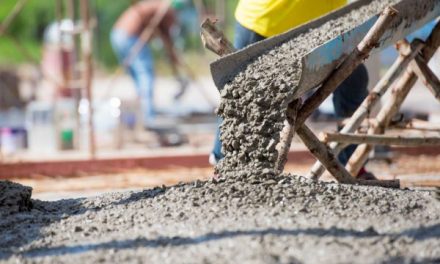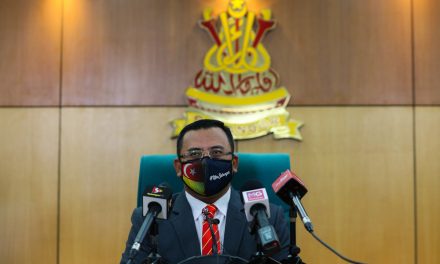Malaysia must be cautious as it heads to recovery, say experts
With five states moving into Phase Two of the National Recovery Plan (NRP) today, health experts advised that the risk of reopening certain economic sectors must be managed. Even though Malaysia was poised to accelerate vaccination in July, the health experts said the country must be cautious as it heads to recovery. International Islamic University Malaysia epidemiologist Prof Dr Jamalludin Ab Rahman said companies must have self-control and a disciplined mindset, even if they were allowed to operate. He said Malaysia was likely to have at least 40% of its population get at least one dose of vaccine by September if supply remains steady. According to the Special Committee on Covid-19 Vaccine Supply (JKJAV), about 19.2% of Malaysia’s population have received at least one dose of the vaccine as of July 3, while 7.8% of the total population – which is 10.8% of the adult population – had received double doses. “Besides the three indicators the government looks at on whether a state can move into the next phase of the NRP, there are other factors to consider,” said Universiti Malaya professor of epidemiology and public health Dr Sanjay Rampal, adding that balancing the benefits and cost of national interventions was challenging. “The SOP should ideally be calibrated based on a combination of factors, including the proportion of community transmission, reproductive number, total positivity ratio and case fatality rates, among others,” he said. (The Star)
Some developers defaulting on maintenance fee of unsold strata property
The enforcement of long periods of Covid-19 movement control measures have resulted in some developers failing to pay maintenance charges and sinking fund of strata developments, The Edge Malaysia reported. “Developers are required by law to pay the monthly maintenance fee and contribute to the sinking fund, but many are defaulting on their payment, citing financial distress. This is expected to result in millions of ringgit in defaults, as well as poorly managed strata properties,” wrote the weekly. The default amount is running into millions of ringgit and it could get worse under the now-extended MCO, noted Malaysia Institute of Property and Facility Managers (MIPFM) president Adzman Shah Mohd Ariffin. Developers are “duty-bound” by the Strata Management Act 2013 (SMA 2013) to pay the monthly maintenance charges and towards the sinking fund for the unsold units. Lawyer Ranjan N Chandran said there is a lack of action against developers who fail to pay for these unsold units, and that it is “disappointing” that there has been “no decision yet by the SMT and no criminal prosecution” against such property developers. (The Edge)
One million Pfizer Covid-19 vaccine doses arrive from the US
Malaysia received one million doses of the Covid-19 Pfizer-BioNTech vaccine from the United States this morning. The United States (US) Embassy in a statement today said that shipment of the vaccine arrived at the Sultan Abdul Aziz Shah Airport for distribution to vaccine centres nationwide. “We are committed to working with the Malaysian government to support the National Covid-19 Immunisation Program by increasing vaccine coverage and helping to achieve its target for recovery as quickly as possible,” said US Ambassador to Malaysia, Brian McFeeters. The vaccine is part of US President Joe Biden’s pledge to help nations struggling with handling the pandemic amid concern about the disparity in vaccination rates between advanced and developing countries. He pledged to donate 80 million doses worldwide, with Malaysia among the first to receive them. Other nations to receive this donation include Indonesia with four million doses, and the Philippines, Vietnam, Thailand, Laos, Papua New Guinea, and Cambodia. (Malay Mail)
Made-in-Malaysia Covid-19 vaccine expected to be ready in 2024
The Covid-19 vaccine currently in development in Malaysia is also being designed as a booster shot, says Institute for Medical Research (IMR) director Dr Tahir Aris. “Those who are fully vaccinated may need booster shots to stay protected, and they may even need it yearly. Such a move is important to continue our defence against the coronavirus. Malaysia should not rely wholly on imported vaccine supplies,” said Dr Tahir. He said the vaccine also took into account variants of concern such as the highly infectious Delta strain. He said the project’s progress had been positive and the inactivated vaccine would undergo pre-clinical trials involving animals next month at the Veterinary Research Institute facility in Ipoh, Perak. “The tests will take around six months before we can move forward with clinical trials involving humans next year. As such, we hope that the vaccine will be ready in 2024,” he added. IMR, which is under the Health Ministry, is currently working on two types of Covid-19 vaccines: one using mRNA technology and the other using the inactivated vaccine approach. It was reported that a budget of RM3.1mil was approved for the development of Covid-19 vaccines for laboratory and animal studies only. Extra funding will have to be applied for to fund the pre-clinical and clinical studies. (The Star)
MoH: Usage of hospital beds in Klang Valley reaches over 85%
The current usage of patient beds, including repurpose beds in hospitals in the Klang Valley, has now reached more than 85%, said Health Minister Datuk Seri Dr Adham Baba. He said by taking into account the need for extra beds, especially in the Intensive Care Unit (ICU), the Ministry of Health (MoH) would implement several immediate measures to address the unexpected high referral rate to the ministry’s hospitals in the Klang Valley. Among steps that will be implemented immediately is to further expand the outsourcing of non-Covid-19 patients to private hospitals to enable the Kuala Lumpur Hospital (HKL) to treat more Covid-19 patients. In addition, the capacity of ICU and non-ICU beds includes equipment and facilities such as ventilators in MOH hospitals and university teaching hospitals will be increased to treat more Covid-19 patients. Meanwhile, Dr Adham said of the total Covid-19 cases handled by HKL, 71% were category three to five patients, while the remaining were category one and two patients. The increasing number of Covid-19 patients or referrals to MOH hospitals in the Klang Valley is being addressed in a collaboration with Sungai Buloh Hospital which now has the status of Covid-19 Hospital and the Covid-19 Quarantine and Low-risk Treatment Centre (PKRC) at Malaysia Agro Exposition Park (MAEPS) which treated Covid-19 patients up to category four before being transferred to the hospital. (Malay Mail)
WWF calls for transparency in approving development projects in vulnerable areas
Transparency is of utmost importance throughout the process of approving development projects in extremely vulnerable and valuable areas such as Mabul Island, says WWF Malaysa. Its head of Marine, Monique Sumampouw said an Environmental Impact Assessment (EIA) should be carried out to ensure a proper mitigation plan was in place and to avoid marine destruction due to negligence in sensitive areas such as the recent incident in the world-famous dive sites, Paradise I and II, at Mabul Island. “A barge heavily loaded with construction materials has brought devastating damage there to years of marine conservation work done together with the local communities besides partner organisations, as the coral reefs that took decades to thrive were destroyed within seconds,” she said in a statement. “Losing essential parts of the marine environment such as coral reefs will generate ripple effects that cause much broader depletion to fisheries, tourism and the social economy,” she said. Mabul Island is undeniably an important place for the world’s biodiversity, for it is part of the Coral Triangle Region – a marine region that spans those parts of Indonesia, Malaysia, Papua New Guinea, the Philippines, the Solomon Islands and Timor-Leste. (Malay Mail)





